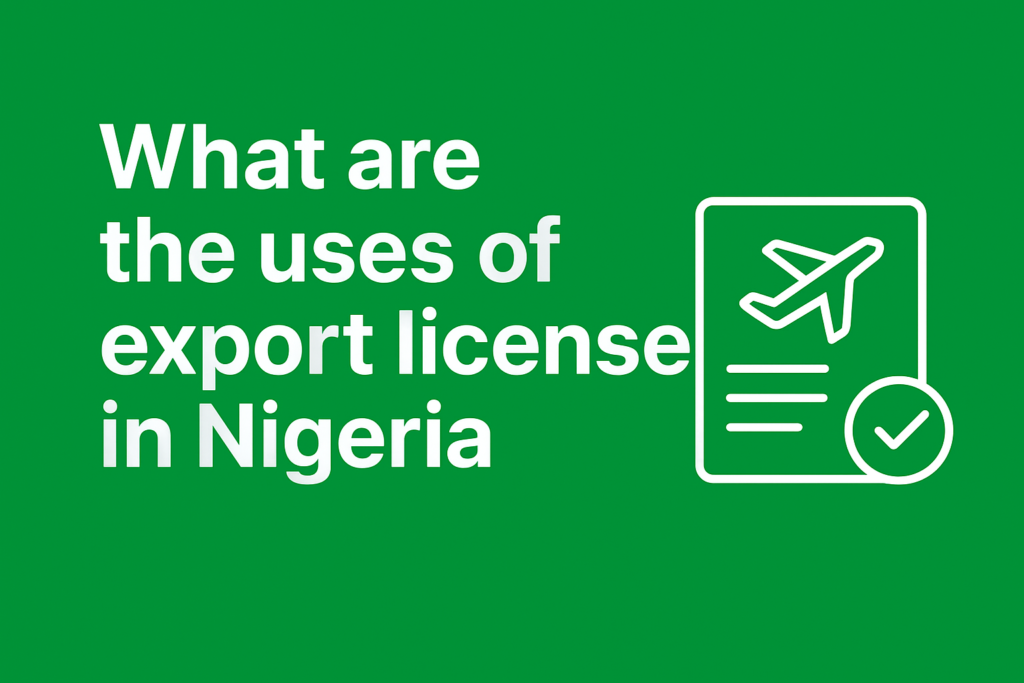If you run a business in Nigeria and deal with the exportation of goods or services, one of the first documents you need is an export license. Without it, you cannot legally move goods in and out of the country.
An export license does more than just authorize trade — it comes with numerous benefits and opportunities that can help your business grow globally. Below, we’ll explore the key uses and advantages of having an export license in Nigeria.
1. Export Permit (Legal Authorization to Trade)
The primary use of an export license is that it gives you legal permission to export goods without facing penalties, customs problems, or the risk of goods being seized. This authorization ensures your business can operate smoothly across borders.
2. Gateway to International Trade
With an export license, Nigerian exporters gain access to the global market. This includes opportunities to trade with international buyers, earn foreign exchange, and expand into new markets. It serves as your passport to global commerce.
3. Builds Trust with Foreign Buyers
Foreign buyers are more confident when dealing with registered and recognized businesses. Having an export license qualifies your business as trustworthy and credible, helping you establish stronger relationships with international clients.
4. Ensures Compliance with Trade Regulations
An export license helps your transactions move smoothly through customs while ensuring your business complies with all necessary trade laws and regulations. This reduces delays, legal risks, and unnecessary costs.
5. Unlocks Access to Export Incentives
Licensed exporters in Nigeria enjoy government-backed support programs such as:
- Export Expansion Grant (EEG) – provides financial support for exporters.
- Duty Drawback Scheme – refunds import duties paid on raw materials used in exported goods.
- Export Development Fund – assists with market research, training, and promotion abroad.
These incentives are designed to encourage exports, reduce costs, and make Nigerian goods more competitive globally.
6. Boosts Business Growth and Credibility
Beyond financial incentives, having an export license improves your business image. It builds credibility, attracts new opportunities, and positions your company as a reliable player in the international market.
Frequently Asked Questions (FAQs)
1. Who needs an export license in Nigeria?
Any individual or company involved in the export of goods or services from Nigeria needs an export license. It is mandatory for legal international trade.
2. How do I apply for an export license in Nigeria?
You can apply through the Nigerian Export Promotion Council (NEPC) by registering your business and providing the required documents.
3. How much does an export license cost in Nigeria?
The cost may vary depending on your business type and category. It’s best to confirm the latest fees directly from the NEPC.
4. Can small businesses get an export license?
Yes. Small and medium-sized enterprises (SMEs) are encouraged to obtain export licenses to expand their businesses into international markets.
5. What happens if I export without a license?
Exporting without a license can lead to seizure of goods, penalties, and loss of credibility with foreign buyers.
Need Help With Your Export License?
Getting an export license can sometimes feel overwhelming, but you don’t have to go through the process alone.
📞 Contact The Brand Growth today at 08111858651 for professional assistance in securing your export license and scaling your business globally.

